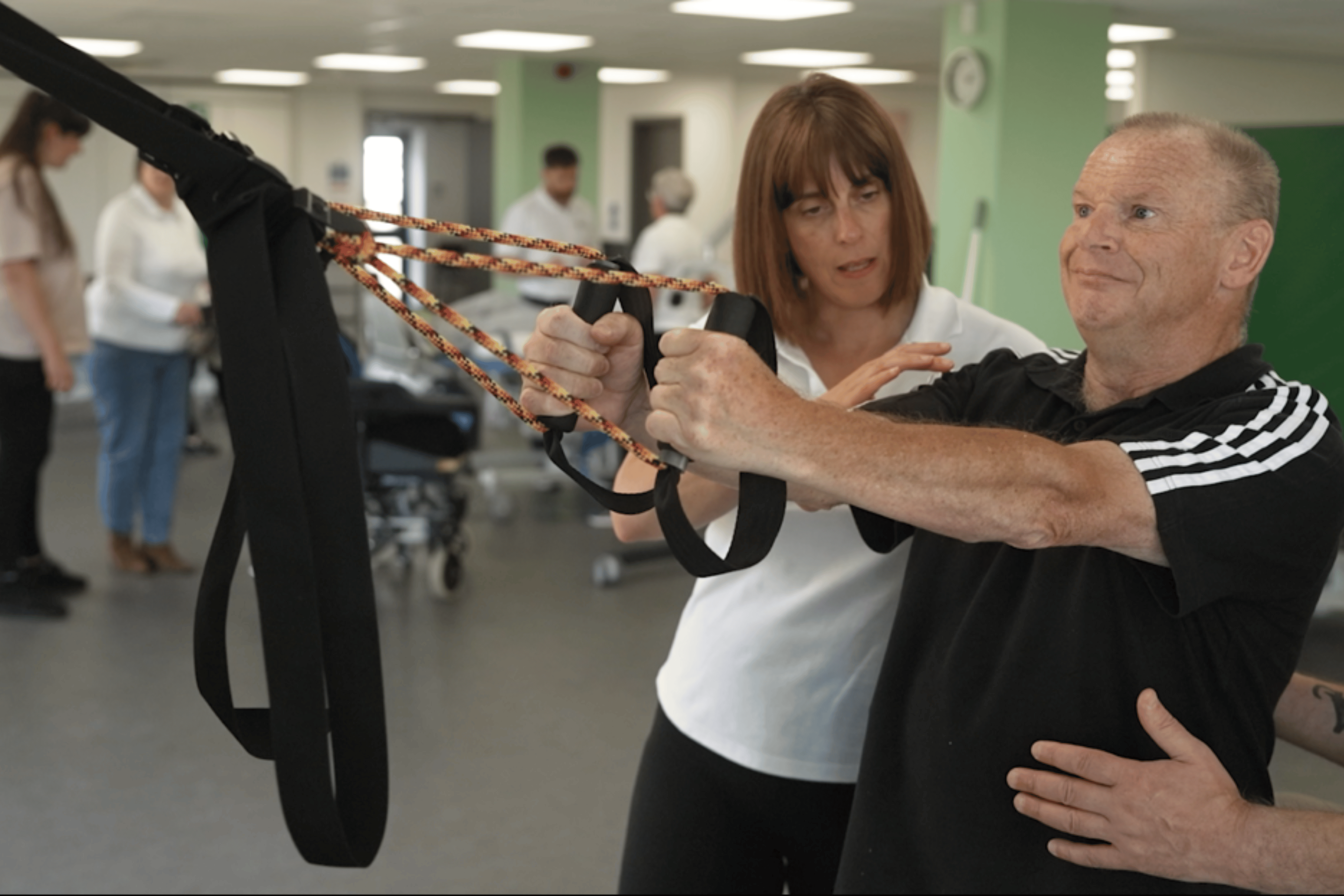Guillain-Barré Syndrome |Transverse Myelitis | Charcot Marie Tooth | Dystonia | Ataxia | Facial Palsy | Muscular Dystrophy
Guillain-Barré Syndrome (GBS) is a rare neurological disorder where the immune system mistakenly attacks the peripheral nerves, causing weakness, numbness, and paralysis. It often begins in the legs and spreads upwards. Guillain Barré Syndrome can progress rapidly but is treatable, with variable recovery times.
Physiotherapy plays a crucial role in the recovery process for individuals with GBS. The focus of therapy is centred on the client’s specific needs and goals.
Some examples of the therapy you may receive includes:
Treatment for Transverse Myelitis is focused upon that individual and tailored specifically to their condition. A treatment programme is formulated following a thorough physical assessment which might include:
Your physiotherapist might also be able to advise an individual on use of appropriate equipment such as wheelchairs and pressure relieving cushions, exercise equipment and electrical muscle stimulators (EMS)/Functional Electrical Stimulation (FES) e.g. Odstock Pace, Bioness Go and Exoskeletons including REX.
Our Neurological Physiotherapists, Therapy Assistants, Sports Therapists and Personal Trainers are able to deliver tailored programs for clients who have Dystonia following a detailed assessment.
Some examples of the dystonia therapy you may receive includes:
We can also refer for:
Botulinum Injections: Provide treatment prior to and following botulinum injections to maximise results.
Lycra splints: Arrange assessment for the provision of lycra splints to help control posture and tone.
Mollii Suit: Arrange assessment for Mollii Suit (jacket and trousers) with built-in electro-stimulation. This sensory-level stimulation brings relief and help where needed by prompting the natural responses of muscle inhibition, muscle activation and pain relief, lasting for up to 48 hours.
Why Choose PhysioFunction?
PhysioFunction offers expert neurological physiotherapy tailored to individual needs, combining hands-on treatments, advanced technology, and compassionate care to maximise independence and enhance quality of life.
We are priviledged to be a part of our client's rehabilitation journey helping them to reach their potential...
And that potential is often greater than they initially thought possible.
Neurological physiotherapy plays a pivotal role in managing ataxia, a condition characterised by impaired coordination and balance due to cerebellar dysfunction.
Through targeted interventions, PhysioFunction aims to enhance functional abilities, promote independence, and improve the overall quality of life for people with ataxia.
Key interventions include:
Facial palsy, characterised by weakness or paralysis of facial muscles, arises from damage to the facial nerve (cranial nerve 7). This condition can significantly impact an individual's appearance, emotional expression, and overall quality of life.
Facial palsy manifests in two primary forms:
Individuals with facial palsy may experience physical symptoms including the inability to close the eye on the affected side, drooping of the mouth, drooling, altered taste, and intolerance to loud noise. They may also experience psychosocial effects including reduced self-esteem and social withdrawal.
Neurological Physiotherapy aims to restore facial muscle function, enhance symmetry, and improve clients' quality of life. Our specialist physiotherapists employ various interventions including:
PhysioFunction offers specialist neurological rehabilitation for individuals facing the challenges of facial palsy, guiding them on their recovery journey and offering interventions tailored to individual needs. Early intervention and access to specialised care are crucial for optimal outcomes.
Muscular dystrophy (MD) is a group of genetic disorders that cause progressive muscle weakness and degeneration due to defects in muscle proteins. It results in difficulty with movement, balance, and daily activities.
There are several types of Muscular Dystrophy, including Duchenne, Becker, Myotonic, and Facioscapulohumeral, each affecting different muscles and progressing at varying rates. While there is no cure, early treatments can help manage symptoms and improve quality of life.
Physiotherapy plays a crucial role in the management of Muscular Dystrophy. A comprehensive rehabilitation program is tailored to each client’s specific needs and goals.
Some examples of the therapy you may receive includes:
